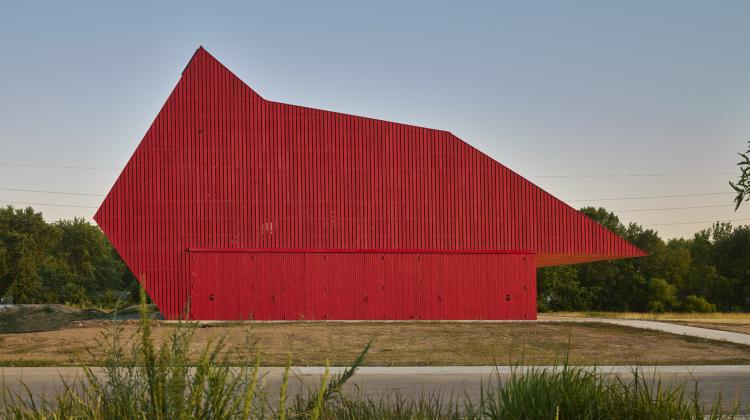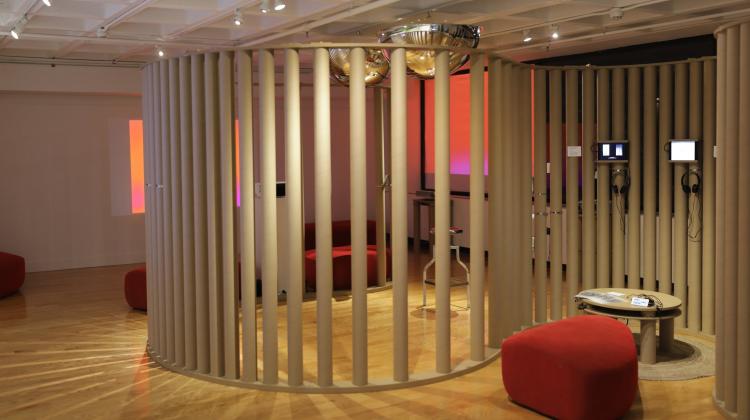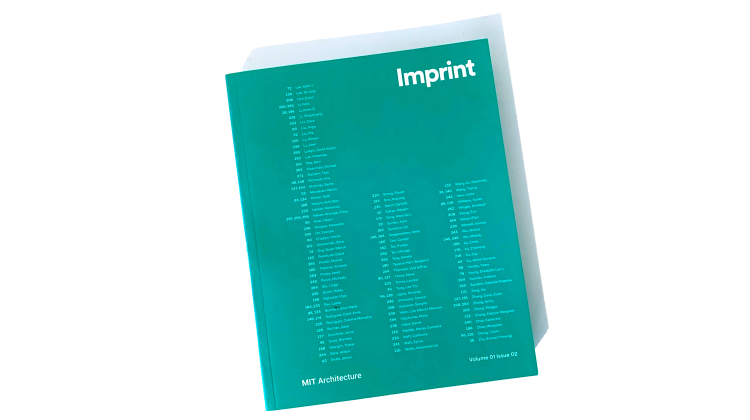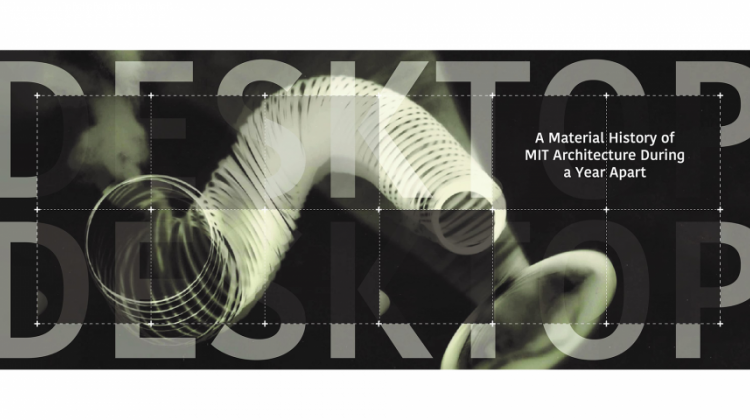Computation
- Image

Architectural Space in XR: a Case Study at the Monastery of Simonos Petra- Nikolaos Vlavianos
- Image
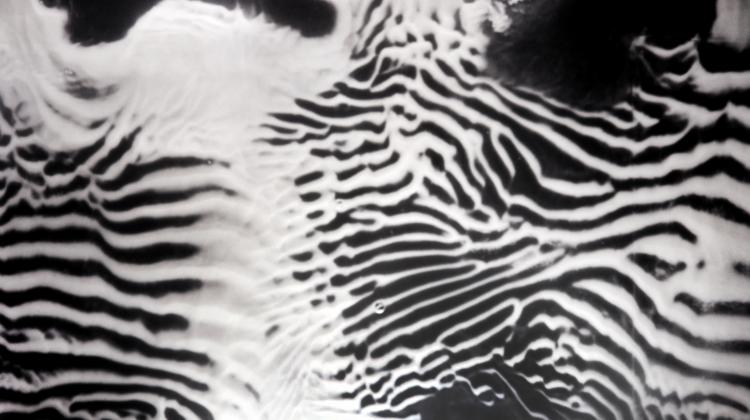
Growing Islands: Rebuilding Beaches and Protecting Coastlines through Wave Energy- Self Assembly Lab
- Image
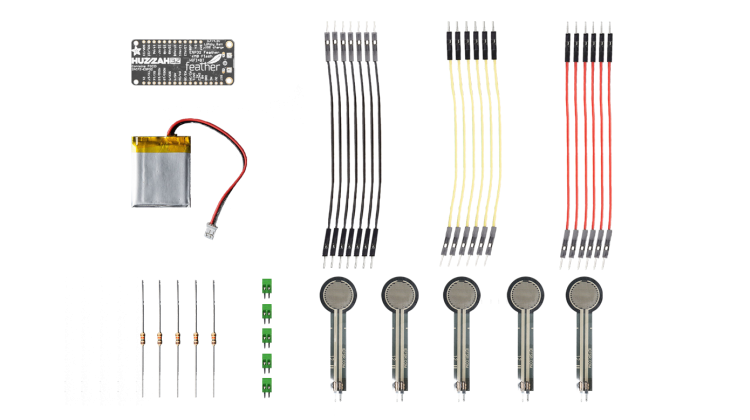
Of Shape and Touch- Dimitrios Chatzinikolis
- Image
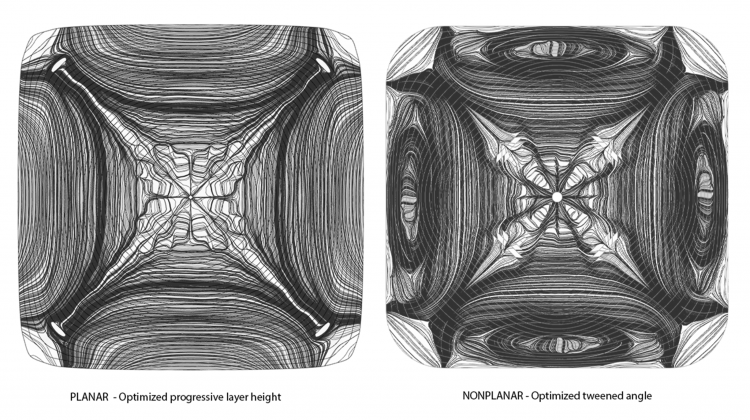
Formwork free 3D printed squinch vaults- Alexander (Sandy) Curth
- Image

A Machine Learning Model for Understanding How Users Value Designs- Jeremy Bilotti
- Image
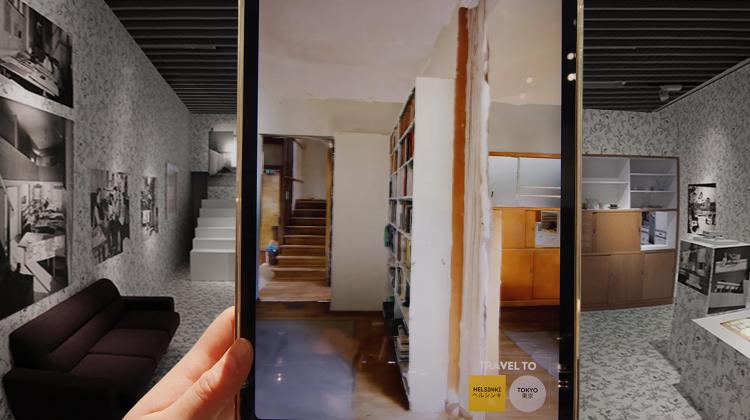
AR Travel to Aalto House, Aino and Alvar Aalto: Shared Vision, Gallery A4, Tokyo- T. Nagakura and ARC Group
- Image
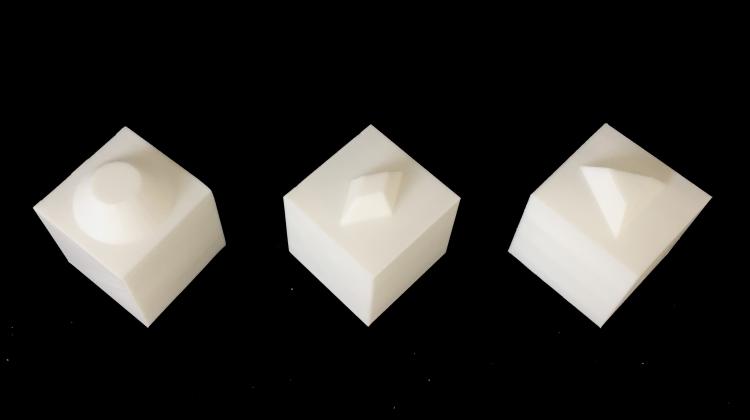
Discrete-to-Complete- Myles Sampson
- Image
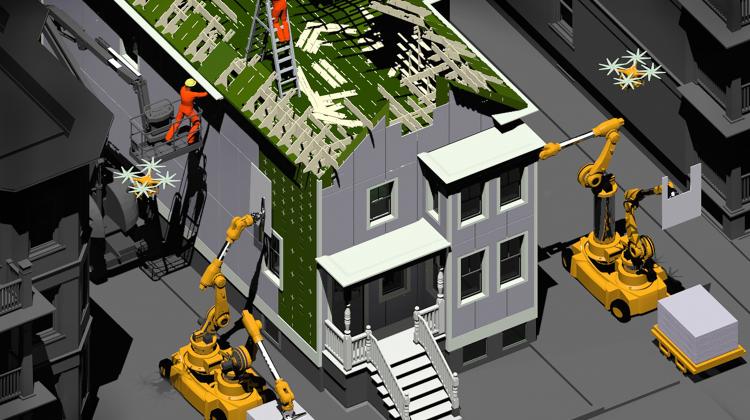
A Proposal for a Digitally Fabricated House in Somerville, MA- Lawrence Sass
- Image

Visual Computing I- So Jung Lee
- Image
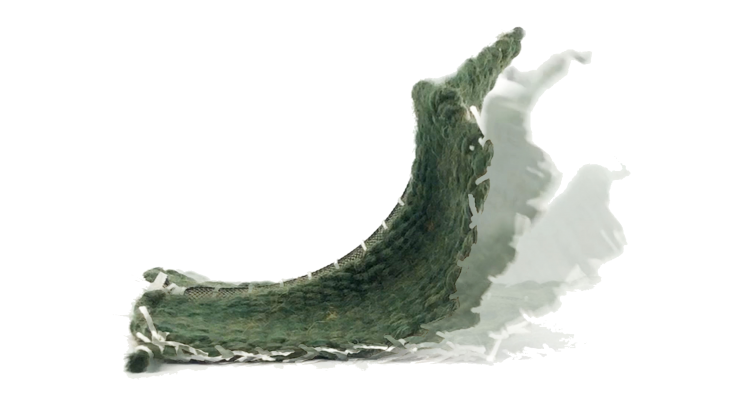
Self-Shaping Mechanisms: Rapid Prototyping of Pneu-Knit Systems- Maryam AlHajri
- Image
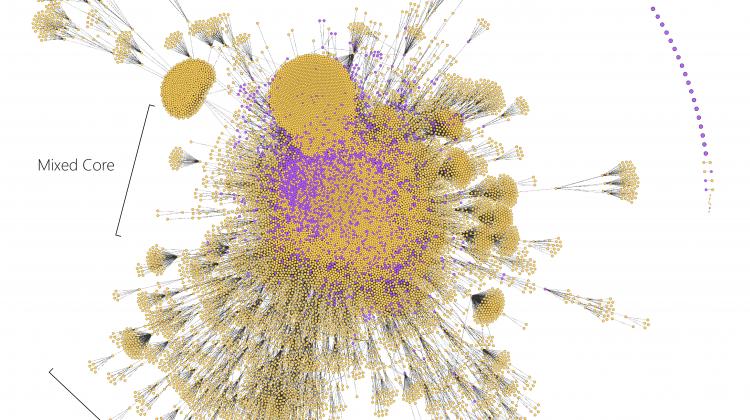
Networking Knowledge and Experience: An Instrumental System for the Personal Development of Designers- Bowen Lu
- Image
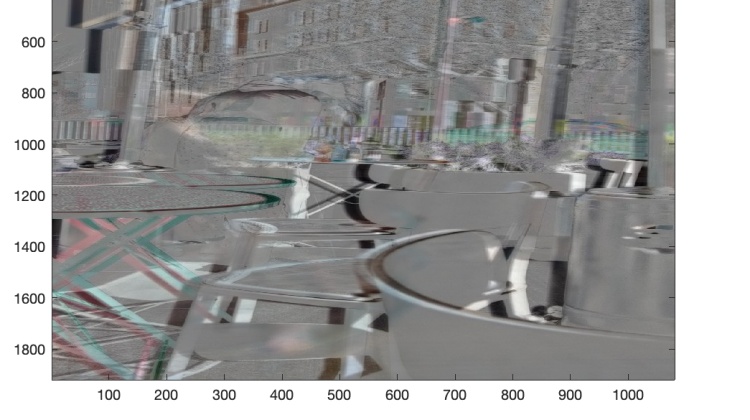
Adaptive Pattern Language on Human Behavior via Multi-Action Video Understanding- Charles Wu
- Image
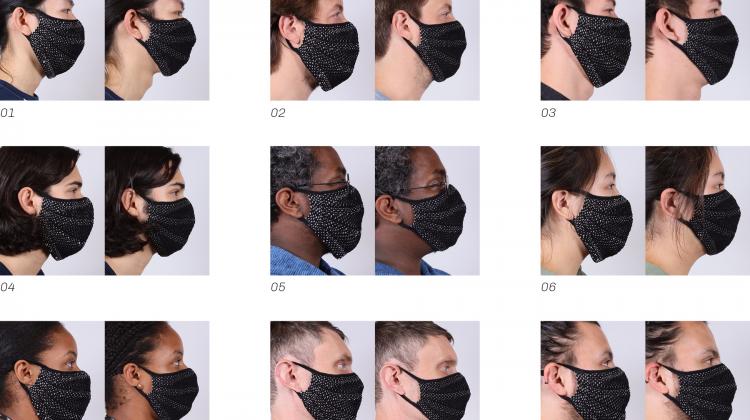
Knit Structure Behavior for Customized Mask Design- Lavender Tessmer
Contact
Inala Locke
Discipline Group Assistant
ilocke@mit.edu
Overview
The Design and Computation Group inquires into the varied nature and practice of computation in architectural design, and the ways in which design meaning, intentions, and knowledge are constructed through computational thinking, representing, sensing, and making. We focus on the development of innovative computational tools, processes, and theories, and we examine their application in creative, socially meaningful responses to challenging design problems.
Faculty, research staff, and students work in diverse and mutually supportive areas including: visualization, digital fabrication and construction processes and technologies, shape representation and synthesis, building information modeling (BIM), generative and parametric design, critical studies of digital and information technologies, digital heritage, and software and hardware development of advanced tools for spatial design and analysis. Our aim is to cover the many facets of a rapidly changing and growing area with in-depth, agenda-setting research and teaching.
Our work is informed simultaneously by architectural practice as well as a variety of other disciplinary perspectives including mathematics, computer science, cognitive science, philosophy, anthropology, STS (Science, Technology, and Society), media studies, and art. Students are strongly encouraged to take advantage of the interdisciplinary environment of MIT, and to take subjects and participate in research across different MIT departments to explore and develop their interests. They are expected to acquire both the technical skills and the theoretical and conceptual foundations to rethink and challenge the limits of current design processes and practices, and to consider the social and cultural implications of their positions.
This area of study offers a concentration in the Master of Science in Architecture Studies (SMArchS) program and a doctoral (PhD) program. Please go to the Design and Computation Group’s list of Dissertations and Theses to see the work done at the culmination of the degree programs.
See Graduate Programs for degree requirements.
News + Events
PhD in Computation
PhD in Computation
The PhD program is broadly conceived around computational ideas as they pertain to the description, generation, and construction of architectural form. Issues range from the mathematical foundations of the discipline to the application and extension of advanced computer technology. The mission of the program is to enhance and enrich design from a computational perspective, with clear implications for practice and teaching.
Faculty, research staff, and students work in diverse but overlapping and mutually supportive areas. Work on shape representation as well as generative and parametric design is directed at a new computational basis for design. Work on digital modeling and rendering seeks to extend the possibilities of visualizing design ideas and un-built work, as well as to improve architectural design practice where designers and technical collaborators are geographically separated. Work on rapid prototyping and CAD/CAM technologies aims to expand design possibilities through the physical modeling of design ideas, and to revolutionize the construction and building phase of architectural practice.
Research employs computational media for the representation and use of design knowledge. Faculty, research staff, and students associated with the group combine education in architecture and urban design with education in computer graphics, art, mathematics, and other fields.
The minimum residency requirement for the PhD degree is two years and it is expected that most students will take no more than five years to complete the degree.
Faculty Advising
Each student will be assigned a faculty advisor in Computation upon admission. The advisor will consult on the student’s initial plan of study and on the choice of subjects in subsequent terms. They will assist the student in selecting an advisory committee and subsequently a dissertation committee. Often, but not always, the faculty advisor becomes the dissertation committee chair if the student so desires.
SMArchS
The Master of Science in Architecture Studies (SMArchS) is a two-year program of advanced study founded on research and inquiry in architecture as a discipline and as a practice. The program is intended both for students who already have a professional degree in architecture and those interested in advanced non-professional graduate study.
SMArchS in Computation
The Computation Group inquires into the varied nature and practice of computation in architectural design, and the ways in which design meaning, intention, and knowledge are constructed through sensing, thinking, and making computationally. It focuses on the development of innovative computational tools, processes and theories, and applying these in creative, socially meaningful responses to challenging design problems.
Theses and Dissertations
MArch Theses
Choi, Joshua, web page
… MArch 2014, document title: Democratic Play: Crowd-Sourcing through Games for Architectural Design (Takehiko Nagakura)
Fisher, Derek
… MArch 1998, document title: Ground Zero (William Mitchell and Andrew Scott)
Gealy, Rachel
… MArch 2010, document title: Urbanizing the American Dream: Symbiotic Housing for Baltimore (Kent Larson)
Kwon, Kyoung Eun
… MArch 2004, document title: Filmic Architecture: On Motion Perspective in an Architectural Synthesis (Takehiko Nagakura)
Li, Dan, web page
… MArch 2016, document title: Fluid Atmospheres: Adaptive Interplay between Natural and Artificial Light Projection (Takehiko Nagakura)
Liao, Nancy Han
… MArch 2001, document title: Complexly Curvlinear Surfaces in Composite Materials(William Mitchell)
Nelson, Maggie
… MArch 2011, document title: Re-imagining the Maison Tropicale: a 21st century prefabricated building system inspired by Jean Prouve' (Lawrence Sass)
Park, Kat
… MArch 2003, document title: Reinterpretation of space in a networked community(William Mitchell and William Porter)
Park, Sung-o
… MArch 2009, document title: A Design Strategy for Transforming an Old Power Plant into a Cultural Center (Kent Larson)
Patel, Sayjel Vijay, web page
… MArch 2015, document title: 3-DJ: Sampling As Design (Skylar Tibbits)
Rosenberg, Alice
… MArch 2010, document title: Planning Ahead -- The Emergence of Clean Energy Technology (Kent Larson)
Sheehan, Travis, web page
… MArch 2012, document title: The Urban Design of Distributed Energy Resources (Kent Larson and Dennis Frenchman)
Sun, Meng, web page
… MArch 2017, document title: Cyberspace as a Memory Container (Takehiko Nagakura)
Tang, Pui Wan Pearl
… MArch 2004, document title: Revealing Expressive Spaces - transformation of a former quarry to a dancers' retreat center (William Porter)
Willis, Robin C
… MArch 2011, document title: Feather Weights: Rapid Redeployable Structures for Interim Use (Kent Larson)
Yoo, Hyunjoon, web page
… MArch 1997, document title: Infotecture: Space as Void, Solid, and Activity Information(Takehiko Nagakura)
Zhang, Xu, web page
… MArch 2017, document title: Conversation On Saving a Historical Community: A Participatory Renewal and Preservation Platform (Takehiko Nagakura)
SMArchS Theses
Akbarzadeh, Masoud, web page
Assistant Professor, University of Pennsylvania, Philadelphia, PA
… SMArchS 2012, document title: Designing Performative Surfaces: Computational Interpretation of Flow Pattern Drawings (Takehiko Nagakura)
Aparicio, German, web page
Project Manager, Gehry Technologies, Inc
… SMArchS 2010, document title: Holzbau: Timber Construction and Material Information Exchanges for the Design of Complex Geometrical Structures (Lawrence Sass)
Araya, Sergio, web page
Professor and Dean, School of Design, Universidad Aldolpho Ibáňez
… SMArchS 2006, document title: Parametric Constructs: Computational Designs for Digital Fabrication (Ann Pendleton-Jullian)
received a PhD from the Massachusetts Institute of Technology
Arida, Saeed, web page
… SMArchS 2004, document title: Contextualizing Generative Design (Terry Knight)
Ariza, Ines, web page
… SMArchS 2016, document title: Decoding Details: Integrating Physics of Assembly in Discrete Element Structures (Caitlin Müeller)
As, Imdat
… SMArchS 2002, document title: Emergent Design: Rethinking of contemporary mosque architecture in light of digital technology (Takehiko Nagakura)
Bacharidou, Maroula, web page
Teaching Fellow, MIT Architecture
... SMArchS 2018, document title: Active prototyping : a computational framework for designing while making (Terry Knight)
Bernal, Guillermo, web page
Physical Computing Designer, MIT Mobile Experience Laboratory
… SMArchS 2014, document title: Learning from Master's Muscles: EMG-Based Bio-Feedback Tool for Augmenting Manual Fabrication and Crafting (Takehiko Nagakura and Federico Casalegno)
Blain, Johanne
Personal Care Attendant, Cerebral Palsy of Massachusetts
… SMArchS 2005, document title: Translations of Culture and Identity: A Study of Internet Use In the Haitian Community (William Mitchell)
Botha, Marcel, web page
Partner , Mutopo
… SMArchS 2006, document title: Customized Digital Manufacturing: Concept to Construction Methods across Varying Product Scales (Lawrence Sass)
Can, Eddie, web page
Lead Designer, Zaha Hadid Architects
… SMArchS 2003, document title: Choreographic Assemblages: An Archaeology of Movement and Space (Stanford Anderson and Joan Jonas)
Cardoso Llach, Daniel, web page
Assistant Professor, Carnegie Mellon University
… SMArchS 2007, document title: A Generative Grammar for 2D Manufacturing of 3D Objects (Lawrence Sass and Terry Knight)
received a PhD from the Massachusetts Institute of Technology
Carlsson, Moa, web page
PhD Student, Massachustts Institute of Technology
… SMArchS 2013, document title: Stratified, Destratified, and Hybrid GIS: Organizing a Cross-Disciplinary Territory for Design (George Stiny)
Charles, Patrick P., web page
Associate Professor, Roger Williams University, Bristol, RI
… SMArchS 2000, document title: Perspectives on the Role of the Body in the Design Process: Observations from an Experiment (William Porter)
Chatzitsakyris, Panagiotis, web page
Principal, 0.27 Architects
… SMArchS 2005, document title: The Man With The Movie Camera: An event driven approach to architectural design (Takehiko Nagakura)
Chen, Shouheng
Principal, Shouheng Design and Technology, Toronto, Canada
… SMArchS 2006, document title: Embedding Methods for Massing and Detail in Computer Generated Design of Skyscrapers -- Exploration through Examples of Cesar Pelli's Projects(Takehiko Nagakura)
Chen, Xiaoji
Interaction Designer II, Xbox
… SMArchS 2011, document title: Seeing Differently: Cartography for Subjective Maps Based on Dynamic Urban Data (Takehiko Nagakura and Carlo Ratti)
Chen, Naichun, web page
… SMArchS 2016, document title: Urban Data Mining: Social Media Data Analysis as a Complementary Tool for Urban Design (Kent Larson and Takehiko Nagakura)
Cheng, Chin-Yi, web page
Research Scientist, Autodesk
… SMArchS 2017, document title: Interactive Design Process Based on Augmented Intelligence: A Framework and Toolkit for Designers to Interact and Collaborate with AI Alogritms (Takehiko Nagakura)
Cheung, Kenneth, web page
Research Scientist, NASA Ames Research Center
… SMArchS 2007, document title: Understanding Behavior with Ubiquitous Computing for Architectural Design Tools (Kent Larson)
Chiu, Shih-Sang
… SMArchS 2009, document title: Trig'r: Collective Perception of Architecture (Terry Knight)
Cho, Min-Jung
… SMArchS 2003, document title: Workspace in Transition: Rethinking Workspace through the Design of Reconfigurable Work Surfaces (Takehiko Nagakura)
Choi, Joshua, web page
… SMArchS 2016, document title: Merging Three Spaces: Designing User Interface (UI) in Virtual Reality (VR) for Spatial Design (Takehiko Nagakura)
Choma, Joseph, web page
Assistant Professor, Clemson University
… SMArchS 2011, document title: A Pedagogical Guide into Trigonometric Transformations(George Stiny)
Corem, Yaniv, web page
(Mis)Chief Design Officer, YCXD, Haifa, Israel
… SMArchS 2010, document title: UDesign Toward a User-centered Architecture (Kent Larson and Una-May O'Reilly)
Crichfield, Heather
Partner, Fuster + Architects, PSC, Puerto Rico
… SMArchS 2000, document title: Spatial Manifestations in Pluralist Cultures: The Case of the Isleta de San Juan (William Porter and Sibel Bozdoğan)
De Biswas, Kaustuv, web page
Co-Founder, VibrantData
… SMArchS 2006, document title: A Computational Model of Visual Interpretation (Terry Knight)
Demchak, Gregory
Director of Product Management, Synchro Software Ltd
… SMArchS 2000, document title: Towards a Post-Industrial Architecture: Design and Construction of Houses for the Information Age (William Mitchell)
Dessi-Olive, Jonathan, web page
… SMArchS 2017, document title: Computing with Matter, Shapes and Forces: Toward Material and Structural Primacy in Architecture (George Stiny and John Ochsendorf)
Dimas, Anastasios
Senior BIM Manager, iTech Management Consultancy, UAE
… SMArchS 2009, document title: D-work Innovation: Where, When and in Which Social Context Do Good Ideas Evolve in the Distributed Work Environment of Knowledge Workers?(Kent Larson)
Dritsas, Stylianos, web page
Assistant Professor, Singapore University of Technology and Design
… SMArchS 2004, document title: Design Operators (William Porter)
Duarte, José Pinto, web page
Associate Professor, Technical University of Lisbon
… SMArchS 1993, document title: Order and Diversity within a Modular System for Housing: A Computational Approach (William Mitchell)
Dutta, Projjal
Director, Sustainability Initiatives, Metropolitan Transportation Authority, NYC
… SMArchS 1997, document title: Moksha: Design of Disposable Objects for Second Uses as Construction Components (William Mitchell)
El-Khaldi, Maher
PhD Candidate, Simon University, British Columbia, Canada
… SMArchS 2007, document title: Mapping Boundaries of Generative Systems for Design Synthesis (George Stiny)
received a MS.Arch from Georgia Institute of Technology
El-Zanfaly, Dina , web page
PhD Candidate, Massachusetts Institute of Technology
… SMArchS 2011, document title: Active Shapes: Introducing Guidelines for Designing Kinetic Architectural Structures (Terry Knight)
Elbaum, Meredith
President, The Elbaum Group
… SMArchS 2003, document title: BridgeGreen: Bridging the Disconnect Between Design Professionals and Resources for Environmentally, Socially, and Economically Responsive Architecture (John Fernandez)
Ewing, Phillip, web page
… SMArchS 2014, document title: Interactive Phototherapy: Integrating Photomedicine into Interactive Architecture (Kent Larson)
Fan, Janet
Director, Workplace Strategy, CBRE, Beijing City, China
… SMArchS 2003, document title: Learning Environment Assessment (William Porter)
Fasoulaki, Eleftheria
Architect Engineer, ELEF Architects
… SMArchS 2008, document title: Integrated Design: A Generative Multi-Performative Design Approach (Terry Knight)
Feng, Keru, web page
Co-President, ecotectour, Suttgart, Germany
… SMArchS 2004, document title: The Ethos in The Form Making of Grand Projects in Contemporary Beijing City (William Porter)
Fox, Michael A., web page
Principal, Fox Lin Inc, Los Angeles, CA
… SMArchS 1996, document title: Novel Affordances of Computation to the Design Processes of Kinetic Structures (Takehiko Nagakura)
Gane, Victor
CEO, AestheticLink, Menlo Park, CA
… SMArchS 2004, document title: Parametric Design: A Paradigm Shift? (William Porter)
received a PhD from Stanford University
Gao, Yu, web page
Real Estate Salesperson, Daniel Gale Sotheby's International Realty
… SMArchS 2013, document title: Self-Organized Collaboration: A Self-Evolving Online Collaborative Production Model for Social Enterprise Grassroots Startups (George Stiny)
Gazit, Merav, web page
… SMArchS 2016, document title: Living Matter: Biomaterials for Design and Architecture(Terry Knight)
Goldklang, Shaul, web page
Project Manager, Adam America Real Estate
… SMArchS 2013, document title: Mass-Customization in Commercial Real Estate: How the Aviation Industry Can Help Us Create Beautiful Buildings that Add Value (George Stiny)
Gore Chandorkar, Tripti
Manager in the Design & Interactive Services, Sapient Corporation
… SMArchS 2005, document title: Users, Technology and Space in Libraries in the Digital Age (William Mitchell)
Griffith, Kenfield, web page
CEO, mSurvey
… SMArchS 2006, document title: Design Computing of Complex-Curved Geometry using Digital Fabrication Methods (Lawrence Sass)
received a PhD from the Massachusetts Institute of Technology
Gun, Onur Yuce, web page
Computational Geometry Specialist, Kohn Pedersen Fox Associates, New York
… SMArchS 2006, document title: Narration of Light: Computational Tools for Framing the Tonal Imagination (Takehiko Nagakura)
Gunji, Akira
, Fogarty Finger Architecture PLLC
… SMArchS 2005, document title: Inferring Design Environment (IDE): '(Re)shaping a Design Pattern as a Learning Process' (Terry Knight)
He, Shan, web page
Software Engineer, Data Visualization, Uber, San Francisco, CA
… SMArchS 2014, document title: Mapping Urban Perception: How Do We Know Where We Are? (Takehiko Nagakura and Carlo Ratti)
Hoang, Han Mai, web page
General Director, The BIM Factory, Vietnam
… SMArchS 2005, document title: Automated Construction Technologies: Analyses and Future Development Strategies (Lawrence Sass)
Hovsepian, Sarah, web page
Director, FABWorks, University of California, Irvine
… SMArchS 2012, document title: Digital Material Skins: For Reversible Reusable Pressure Vessels (Terry Knight and Neil Gershenfeld)
Ingram, Josh, web page
Software Developer, Objecutive, San Antonio, TX
… SMArchS 2012, document title: [A]Sorted Selection: Improving Building Performance and Diversity Using a New Form of Interactive Evolutionary Algorithm (Terry Knight and Una-May O'Reilly)
Kalenja, Adela, web page
Project Architect, Eco Offsite, Palo Alto, CA
… SMArchS 2010, document title: The Hard Hat and the Hand-Held: Communication with Hand-Held Computing in the Construction Process (Terry Knight and Takehiko Nagakura)
Kamath, Ayodh, web page
Assistant Professor, Lawrence Technological University, Southfield, MI
… SMArchS 2009, document title: Integrating Digital Design and Fabrication with Craft Production (Terry Knight)
Kardasis, Ari
Partner, Space Inch, Brooklyn, NY
… SMArchS 2011, document title: The Soft Grid (Terry Knight)
Kashyap, Sameer
Director, Parametric Design, Ghery Technologies, Los Angeles, CA
… SMArchS 2004, document title: Digital Making: Exploring Design with Computer Controlled Fabrication (William Porter and Lawrence Sass)
Kassner, Moritz, web page
Chief Executive Officer and Partner, Pupil Labs, Germany
… SMArchS 2012, document title: PUPIL: Constructing the Space of Visual Attention (Terry Knight and Patrick Winston)
Keel, Paul
Research Scientist, Collaborative Sense-Making, Massachusetts Institute of Technology
… SMArchS 1997, document title: Process and Relation Analysis: Capturing Architectural Thought (William Porter)
Kilian, Axel, web page
Assistant Professor, Princeton University
… SMArchS 2000, document title: Defining Digital Space Through a Visual Language (William Mitchell) a PhD from the Massachusetts Institute of Technology
Kim, Simon, web page
Assistant Professor, University of Pennsylvania
… SMArchS 2008, document title: I/O: Input/Output; Design Stategies: An inquiry into thinking/making (William Mitchell)
Kirschner, Michael, web page
AutoDesk
… SMArchS 2015, document title: Visual Programming in Three Dimensions: Visual Representations of Computational Mental Models (George Stiny)
Kotsopoulos, Sotirios, web page
Studio Instructor, NuVu Studio, Cambridge, MA
… SMArchS 2000, document title: Point, Line, Plane: Basic Elements of Formal Composition in Shape Computation and Bauhaus Theories. (Terry Knight)
received a PhD from the Massachusetts Institute of Technology
Kovidvisith, Kalaya
Director, FabCafe, Thailand
… SMArchS 2007, document title: Open Source Alliance Ecology: The Internet Framework for Consumer Driven Participative Design (Kent Larson)
Lee, Sophia Juhee
Project Manager, University of Southern California
… SMArchS 2003, document title: Wireless Bridges: The Laptop Experience in Learning Environment (William Porter and Francis Duffy)
Leung, Victor Pok Yin, web page
… SMArchS 2016, document title: Put it Together: Animating Machine Assembly Instructions for Novices (Terry Knight)
Li, Si
PhD Student, Georgia Institute of Technology
… SMArchS 2008, document title: Data Structures for Context Responsive Modeling in Architecture (William Mitchell)
Liapi, Marianthi, web page
Transformable Intelligence Environments Lab Research Director, Technical University of Crete
… SMArchS 2005, document title: Spatial Diagnosis and Media Treatments (Terry Knight)
Litman-Cleper, Julia, web page
… SMArchS 2016, document title: Situated Mapping: Augmented-Reality Clay and Adaptive Interfacing (Terry Knight and Ruth Rosenholtz)
Liu, Yuchen
Senior Architect, Adrian Smith + Gordon Gill Architecture
… SMArchS 2009, document title: Robotic Design Construction: Digital Fabrication Strategies for Freeform Masonry Casting and Mobile Assembly (Lawrence Sass)
Lobel, Joshua, web page
Lead Engineer, CW Keller & Associates
… SMArchS 2008, document title: Building Information: Means and Methods of Communication in Design and Construction (George Stiny)
Lostritto, Carl, web page
Assistant Professor, Rhode Island School of Design
… SMArchS 2012, document title: Computing Drawing: Programming a Vintage Pen Plotter(George Stiny)
Loukissas, Yanni, web page
Assistant Professor, Georgia Institute of Technology
… SMArchS 2003, document title: Rulebuilding: Exploring Design Worlds Through End-user Programming (William Porter and Lawrence Sass)
received a PhD from the Massachusetts Institute of Technology
Maclain, James
… SMArchS 2007, document title: Design - Make: the Translation of Design Iintention to Fabrication (Lawrence Sass)
Mairopoulos, Dimitrios, web page
Research Specialist, MIT Self-Assembly Lab
… SMArchS 2015, document title: M-Cell Assembly (Terry Knight and Skylar Tibbits)
Mburu, Fred
, Oracle
… SMArchS 2001, document title: Context Modeling : Extending the parametric object model with design context (Wiliam Porter and Takehiko Nagakura)
McGill, Miranda, web page
UX Designer, Yorktown Heights, NY
… SMArchS 2001, document title: A Visual Approach for Exploring Computational Design(Terry Knight)
McKnelly, Carrie, web page
Howard E. LeFevre ’29 Emerging Practitioner Fellow, Ohio State University
… SMArchS 2015, document title: Knitting Behavior: A material-centric design process(Lawrence Sass)
Mendoza, Rolando
Executive Director of Project Integration, Walt Disney Imagineering Shanghai
… SMArchS 2001, document title: Mapping/Forces/Constructing Context: an Operatic Proposal for Boston (Fernando Domeyko)
Mogas-Soldevila, Laia, web page
Architect, Researcher, Mediated Matter Lab, MIT
… SMArchS 2013, document title: New Design Companions Opening Up the Process Through Self-Made Computation (George Stiny)
received a Master of Science in Media Arts and Sciences from MIT
Moon, JunSik
, Seoul National University, Korea
… SMArchS 2007, document title: Shape Grammar for Mies Van Der Rohe's High-rise Apartment (Takehiko Nagakura)
Mutlu, Murat, web page
Principal, International Office of Architects, NYC
… SMArchS 2010, document title: Generative Morphologies of Architectural Organization in Matter Force Field (Meejin Yoon and Nader Tehrani)
Narahara, Taro
Assistant Professor, New Jersey Institute of Technology
… SMArchS 2007, document title: The Space Re-Actor: Walking a Synthetic Man through Architectural Space (Takehiko Nagakura)
Noel, Vernelle, web page
PhD Candidate, Pennsylvania State University
… SMArchS 2013, document title: Trinidad Carnival: Improving Design Through Computation and Digital Technology (Azra Aksamija)
Nunez, Joseph
Intern Architect, DLR Group, Sacramento, CA
… SMArchS 2010, document title: Prefab the FabLab: Rethinking the Habitability of a Fabrication Lab by Including Fixture-Based Components (Lawrence Sass)
Ob'yedkova, Ekaterina, web page
Conversation Engineer, Catalia Health, San Francisco, CA
… SMArchS 2014, document title: Multimodal Environmental Interfaces: Discrete and Continuous Changes of Form, Light, and Color Using Natural Modes of Expression (Takehiko Nagakura)
Özkâr, Mine, web page
Associate Professor, Istanbul Technical University
… SMArchS 1999, document title: Envisioning Creative Space (William Porter and John Rajchman)
received a PhD from the Massachusetts Institute of Technology
Pantazi, Magdalini-Eleni
… SMArchS 2008, document title: Dissecting Design: Exploring the Role of Rules in the Design Process (George Stiny)
Papadopoulou, Athina, web page
PhD Student, Massachusetts Institute of Technology
… SMArchS 2014, document title: Perceptual Prototypes: Towards a Sensory Pedagogy of Space (Terry Knight)
Papanikolaou, Dimitris, web page
DDes Candidate, Harvard University
… SMArchS 2008, document title: Attribute Process Methodology: Feasibility Assessment of Digital Fabrication Production Systems for Planar Part Assemblies Using Network Analysis and System Dynamics (William Mitchell)
received a MS in Media Arts and Sciences, MIT, and Ddes Harvard University
Park, Hyoung-June, web page
Associate Professor, University of Hawaii at Manoa
… SMArchS 1997, document title: Formalization, Data Abstraction, and Communication(George Stiny)
Patera, William, web page
Managing Partner, Pupil Labs, Germany
… SMArchS 2012, document title: PUPIL: Constructing the Space of Visual Attention (Terry Knight and Patrick Winston)
Phillips, M. Giles, web page
Chief Product Designer, Constant Contact
… SMArchS 2007, document title: Design By Searching: A System for Creating and Evaluating Complex Architectural Assemblies (Kent Larson)
Pinochet, Diego, web page
Associate Professor, Universidad Adolfo Ibañez, Santiago, Chile
… SMArchS 2015, document title: Making gestures: design and fabrication through real time human computer interaction (Terry Knight)
Plewe, Thomas
President, NeverCenter, Ltd Co., Salt Lake City, UT
… SMArchS 2008, document title: Besting the Tract Home: A Software-Based Bricolage Approach to Affordable Custom Housing (Terry Knight)
Press, B. Joseph, web page
Director, Deloitte Digital, Switerland
… SMArchS 1997, document title: Emergent Pedagogies in Design Research Education (William Porter)
received a PhD from the Massachusetts Institute of Technology
Raber, Christianna, web page
Principal, Christianna Raber Sustainable Architectural Design Services
… SMArchS 2004, document title: The Story of the HOUSE I Lite System : 'Less calories, more taste, your site, your vision... ' (Andrew Scott)
Reichert, Steffen, web page
D.Eng Candidate, University of Stuttgart
… SMArchS 2010, document title: Reverse Engineering Nature: Design Principles for Flexible Protection Inspired by Ancient Fish Armor of Polypteridae (Terry Knight and Christine Ortiz)
Rosello, Oscar, web page
… SMArchS 2017, document title: NeverMind: An Interface for Human Memory Augmentation (Terry Knight)
Rosenberg, Daniel, web page
… SMArchS 2009, document title: Designing for Uncertainty: Novel Shapes and Behaviors using Scissor-Pair Transformable Structures (Terry Knight)
received a PhD from the Massachusetts Institute of Technology
Rothenberg, John
Founding partner , Sosolimited, Boston, MA and San Diego, CA
… SMArchS 2007, document title: Indeterminate Liberal Form: Public Space in Sprawl (Terry Knight)
Saad, Rita
… SMArchS 2004, document title: Parametric Tools and Digital Fabrication for the Design of Luminous Ceilings (Lawrence Sass and William Porter)
Sandoval Olascoaga, Carlos, web page
… SMArchS 2016, document title: Painting with Data: From a Computational History of Urban Models to an Alternative Urban Computing (George Stiny)
Sass, Lawrence, web page
Associate Professor, Massachusetts Institute of Technology
… SMArchS 1994, document title: Precedents in African American Architecture (William Porter)
Seely, Jennifer, web page
Architect, Norwood Architecture
… SMArchS 2004, document title: Digital Fabrication in the Architectural Design Process(William Porter and Lawrence Sass)
Senske, Nicholas, web page
Assistant Professor, Iowa State University
… SMArchS 2005, document title: Fear of Code: An Approach to Integrating Computation with Architectural Design (William Porter)
Sharif, Shani, web page
Intern Software Developer, Autodesk in Atlanta, GA
… SMArchS 2010, document title: The Confluence of Digital Design/Fabrication and Biological Principles: Systematic Knowledge Transfer for the Development of Integrated Architectural Systems (Terry Knight and Lawrence Sass)
Sheardwright, Ian
Software Developer, Gensler, Hartford, CT
… SMArchS 2002, document title: Three-Dimensional Sketch Tool (Wiliam Porter)
Sich, Mark
, Shell Global Solutions, New Orleans, LA
… SMArchS 1997, document title: Articulating Architectural Design through Computational Media (William Mitchell)
Simondetti, Alvise
, ARUP
… SMArchS 1997, document title: Rapid Prototyping in Early Stages of Architectural Design(William Mitchell)
Sinisterra, Maria
Principal, Ainoa Studio
… SMArchS 2004, document title: Rethinking Emergency Habitats For Refugees: Balancing Material Innovation And Culture (Reinhard Goethert and William Porter)
Smithwick, Daniel, web page
PhD Candidate, Massachusetts Institute of Technology
… SMArchS 2009, document title: Architectural Design 2.0: An Online Platform for the Mass Customization of Architectural Structures (Lawrence Sass)
Soares, Gonçalo Ducla, web page
Project Manager, Arte Charpentier Architectes, Paris, France
… SMArchS 2004, document title: Audio-Visual Frameworks for Design Process Representation (William Porter)
Soto Ogueta, Carolina, web page
Executive Director, BIM Planning, CORFO (Chilean Economic Development Agency)
… SMArchS 2012, document title: User Innovation in Digital Design and Construction: Dialectical Relations Between Standard BIM Tools and Specific User Requirements (Takehiko Nagakura)
Sun, Xiaohua
Professor, College of Design and Innovation, Tongji University
… SMArchS 2002, document title: Using Space to Think (William Porter)
received a PhD from the Massachusetts Institute of Technology
Sung, Woong Ki, web page
PhD Student, Massachusetts Institute of Technology
… SMArchS 2013, document title: Sketching In 3D: Towards a Fluid Space for Mind and Body (Takehiko Nagakura)
Tai, Alan Song-Ching, web page
Associate, Front, Inc
… SMArchS 2012, document title: Design for Assembly: A Computational Approach to Construct Interlocking Wooden Frames (Takehiko Nagakura)
Tibbits, Skylar, web page
Research Scientist and Lecturer, Massachusetts Institute of Technology
… SMArchS 2010, document title: Logic Matter: Digital Logic as Heuristics for Physical Self-Guided-Assembly (Terry Knight and Patrick Winston)
Tichenor, James
LAB Co-chief, Rockwell Group
… SMArchS 2004, document title: Electronically Modulated Materials: Effects And Context(William Porter)
Toulkeridou, Varvara
Research Engineer, Autodesk
… SMArchS 2010, document title: Dynamic Descriptions: Steps Towards a Design Machine(George Stiny)
Tsakonas, Konstantinos
… SMArchS 2008, document title: Measuring the Value of Workspace Architectural Design: Construction of the Workspace Communication Suitability Index (WOCSIT) (William Mitchell)
Tsamis, Alexandros, web page
Associate Professor, Universidad Adolfo Ibañez, Santiago, Chile
… SMArchS 2004, document title: Digital Graft: towards a non-homogeneous materiality(Mark Goulthorpe and Ann Pendleton-Julian)
received a PhD from the Massachusetts Institute of Technology
Turakhia, Dishita, web page
… SMArchS 2017, document title: Thirteen Ways of Looking - A Theoretical Inquiry into Computational Creative Thinking: Thoughts as Shapes, Ideas as Spatial Relations and Creative Thinking as Shape Grammar (George Stiny)
Turgeman, Yaniv Jacob, web page
CEO, R&D Lead, EveryBiome
… SMArchS 2015, document title: Microbial Mediations: Cyber-Biological Extensions of Human Sensitivity to Natural and Made Ecologies (Terry Knight and Eric Alm)
Vairani, Franco
Principal, Squared Design Lab, Los Angeles, CA
… SMArchS 2001, document title: Behind the Screen: on the perception of computer-generated architectural representations (Takehiko Nagakura)
Vardouli, Theodora, web page
Assistant Professor, McGill University
… SMArchS 2012, document title: Design-for-Empowerment-for-Design: Computational Structures for Design Democratization (George Stiny)
Verbeeck, Kenny
Engineer Team Leader, Ney & Partners Structural Engineering, Brussels, Belgium
… SMArchS 2006, document title: Randomness as a Generative Principle in Art and Architecture (George Stiny)
Villalon, Rachelle, web page
, Hosta Labs
… SMArchS 2008, document title: Reasonable Computing for Architectural Fabrication(Lawrence Sass)
Watabe, Mark
Software Engineer, Twitter
… SMArchS 2010, document title: The Shape of Digital Content: A Computing Language Based on Gibson's Ecological Approach to Visual Perception and the Theory of Shape Grammars (George Stiny)
Whiting, Emily, web page
Assistant Professor, Dartmouth College
… SMArchS 2006, document title: Geometric, Topological and Semantic Analysis of Multi-Building Floor Plan Data (Takehiko Nagakura and Seth Teller)
Wiggins, Glenn
Academic Administrator, Greater Boston Area
… SMArchS 1989, document title: Methodology in Architectural Design (Donald Schon)
received a PhD from the Massachusetts Institute of Technology
Wortmann, Thomas, web page
Studio Instructor, Singapore University of Technology and Design
… SMArchS 2013, document title: Representing Shapes as Graphs: A Feasible Approach for the Computer Implementation of Parametric Visual Calculating (George Stiny)
Wu, Qiong (Julia)
… SMArchS 2003, document title: Bracket Study: Textual, Computation, Digital (Terry Knight)
Yang, Lin
Architectural Designer, KlingStubbins
… SMArchS 2009, document title: BIM Game: A "Serious Game" to Educate Non-experts about Energy-related Design and Living (Kent Larson)
Yeh, Bryant, web page
Head Designer and Technical Chief, JoT House, Inc.
… SMArchS 1998, document title: Kinetic Wall: An Exploration into Flexible Structure(Takehiko Nagakura and William Mitchell)
Yi, Lu
… SMArchS 2008, document title: A New Approach in Data Visualization to Integrate Time and Space Variability of Daylighting in the Design Process (Marilyne Andersen and Takehiko Nagakura)
Yu, Huei-Sheng
… SMArchS 2009, document title: Parametric Architecture: Performative/Responsive Assembly components (Takehiko Nagakura)
Zaman, C̦ağri, web page
PhD Student, Massachusetts Institute of Technology
… SMArchS 2014, document title: Hallucination Machine: A Body Centric Model of Space Perception (Terry Knight and Patrick H. Winston)
Zolotovsky, Katia, web page
PhD Student, Massachusetts Institute of Technology
… SMArchS 2012, document title: Bioconstructs: Methods for Bio-Inspired and Bio-Fabricated Design (Terry Knight and Christine Ortiz)
Zulas Castellanos, Alejandro
Architect, Stantec Architecture
… SMArchS 2004, document title: Adaptable Architecture: A Computational Exploration Into Responsive Design Systems (Terry Knight)
PhD Dissertations
Alfaris, Anas
Assistant Professor, King Abdulaziz City for Science and Technology, Riyadh Saudi Arabia
… PhD 2009, document title: Emergence through Conflict: The Multi-Disciplinary Design System (MDDS) (William Mitchell)
Araya, Sergio, web page
Professor and Dean, School of Design, Universidad Aldolpho Ibáňez
… PhD 2011, document title: Performative Architecture (George Stiny)
Arida, Saeed, web page
Chief Excitement Officer and Founder, NuVu
… PhD 2011, document title: More Seeing in Learning (George Stiny)
Arpak, Asli, web page
… PhD 2016, document title: Seeing as Aesthetic Experience and Creative Action: Visual Practices with Shape Grammars in Design Education (George Stiny)
Barrios, Carlos, web page
Assistant Professor, Clemson University
… PhD 2006, document title: Design Procedures: A Computational Framework for Parametric Design and Complex Shapes in Architecture (William Mitchell)
Cardoso Llach, Daniel, web page
Assistant Professor, Carnegie Mellon University
… PhD 2012, document title: Builders of the Vision: Technology and the Imagination of Design (Terry Knight)
Celani, Gabriela, web page
Associate Professor, University of Campinas, Brazil
… PhD 2002, document title: Beyond Analysis and Representation in CAD: A New Computational Approach to Design Education (William Mitchell and Terry Knight)
Colakoglu, Birgul, web page
Professor, Yildiz Technical University
… PhD 2001, document title: Design by Grammar: Algorithmic Design in an Architectural Context (George Stiny)
Davis, Felecia A., web page
Assistant Professor, Pennsylvannia State University
… PhD 2017, document title: Softbuilt: Computational Textiles and Augmenting Space Through Emotion (Terry Knight)
Duarte, José Pinto, web page
Associate Professor, Technical University of Lisbon
… PhD 2001, document title: Customizing Mass Housing: A Discursive Grammar for Siza's Malagueira Houses (William Mitchell)
Griffith, Kenfield, web page
CEO, mSurvey
… PhD 2012, document title: Information to Iteration: Using Information and Communication Technologies [ICT] in Design for Remote Regions (George Stiny)
Gun, Onur Yuce, web page
… PhD 2016, document title: A Place for Computing Visual Meaning: The Broadened Drawing-Scape (George Stiny)
Ham, Derek, web page
Assistant Professor of Graphic Design, North Carolina State University
… PhD 2015, document title: Playful Calculation: Tangible Coding for Visual Calculation(George Stiny)
Intrachooto, Singh, web page
Assistant Professor and Head of the Creative Center for Eco-Design, Kasetsart University , Bangkok, Thailand
… PhD 2002, document title: Technological Innovation in Architecture: Effective Practices for Energy Efficient Implementation (William Porter and Andrew Scott)
Joachim, Mitchell, web page
Associate Professor, New York University
… PhD 2006, document title: Ecotransology: Integrated Design for Urban Mobility (William Mitchell)
Keel, Paul
Research Scientist, Collaborative Sense-Making, Massachusetts Institute of Technology
… PhD 2004, document title: Knowledge Trading: Computational Support for Individual and Collaborative Sense-Making Activities (William Porter)
Kilian, Axel, web page
Assistant Professor, Princeton University
… PhD 2006, document title: Design Exploration through Bidirectional Modeling of Constraints (Takehiko Nagakura)
Koschitz, Duks, web page
Assistant Professor, Pratt Institute, New York, NY
… PhD 2014, document title: Computational Design with Curved Creases: David Huffman's Approach to Paperfolding (Terry Knight and Erik Demaine)
Kotsopoulos, Sotirios, web page
Studio Instructor, NuVu Studio, Cambridge, MA
… PhD 2005, document title: Constructing Design Concepts: A Computational Approach to the Synthesis of Architectural Form (Terry Knight and George Stiny)
Li, Andrew I-kang, web page
Associate Professor, Kyoto Institute of Technology
… PhD 2001, document title: A Shape Grammar for Teaching the Architectural Style of The Yingzao Fashi (George Stiny)
Liew, Haldane
… PhD 2004, document title: SGML: A Meta-Language for Shape Grammar (Takehiko Nagakura)
Loukissas, Yanni, web page
Assistant Professor, Georgia Institute of Technology
… PhD 2008, document title: Conceptions of Design in a Culture of Simulation (William Porter)
Martino, Jacquelyn, web page
Researcher, IBM, Yorktown Heights, NY
… PhD 2006, document title: The Immediacy of the Artist's Mark in Shape Computation: From Visualization to Representation (George Stiny and Terry Knight)
Monks, Michael
Software Engineer, BOSE Corporation
… PhD 1999, document title: Audioptimization: Global-Based Acoustic Design (Julie Dorsey)
Mota Toledo, Selene, web page
Senior Research Engineer, Samsung Think Tank Team
… PhD 2014, document title: Scalable Recognition of Human Activities for Pervasive Applications in Natural Environments (Kent Larson)
Muslimin, Rizal, web page
Lecturer, University of Sydney, Australia
… PhD 2014, document title: EthnoComputation: On Weaving Grammars for Architectural Design (Terry Knight)
Nikolovska, Lira, web page
Senior User Experience Architect, Autodesk
… PhD 2006, document title: Poetics of Furntiture: Augmenting Furniture with Technologies(Terry Knight)
Oh, Byong Mok
Vice President of Service Strategy, Samsung Electronics
… PhD 2002, document title: A System for Image-based Modeling and Photo Editing (Julie Dorsey)
Oxman, Neri, web page
Associate Professor, Massachusetts Institute of Technology
… PhD 2010, document title: Material-based Design Computation (William Mitchell)
Özkâr, Mine, web page
Associate Professor, Istanbul Technical University
… PhD 2004, document title: Uncertainties of Reason: Pragmatist Plurality in Basic Design Education (George Stiny)
Park, Juhong, web page
Assistant Professor, University of Miami
… PhD 2015, document title: Synthetic Tutor: Profiling Students and Mass-Customizing Learning Processes Dynamically in Design Scripting Education (Takehiko Nagakura)
Press, B. Joseph, web page
… PhD 1999, document title: Building Community: Design in the Organizational Mind(William Porter)
Rocha, Altino, web page
Assistant Professor, University of Èvora, Portugal
… PhD 2004, document title: Architecture Theory 1960-1980: Emergence of a Computational Perspective (William Mitchell)
Romao, Luis, web page
Assistant Professor, Technical University of Lisbon, Portugal
… PhD 2005, document title: A Study of Illegal Housing of Lisbon Built in 1974 to 1984: From Description to Computation (William Mitchell and George Stiny)
Rosenberg, Daniel, web page
… PhD 2015, document title: Transformational Design: A Mindful Practice for Experience-Driven Design (George Stiny)
Sass, Lawrence, web page
Associate Professor, Massachusetts Institute of Technology
… PhD 2000, document title: Reconstructing Palladio's Villas: An Analysis of Palladio's Villa Design and Construction Process (William Mitchell)
Shamonsky, Dorothy, web page
Director of UI/UX Research and Development, Integrated Computer Solutions
… PhD 2003, document title: Tactile, Spatial Interfaces for Computer-Aided Design: Superimposing Physical Media and Computation (William Mitchell)
Shelden, Dennis, web page
Chief Technology Officer, Gehry Technologies
… PhD 2002, document title: Digital Surface Representation and the Constructibility of Gehry's Architecture (William Mitchell)
Smithwick, Daniel, web page
… PhD 2016, document title: Physical Design Cognition: An Analytical Study of Exploratory Model Making to Inform Creative Robotic Interaction (Lawrence Sass)
Smyth, Evan
Staff Software Architect, DreamWorks Animation
… PhD 2001, document title: Designing Aesthetically Pleasing Freeform Surfaces in a Computer Enviroment (William Mitchell)
Sun, Xiaohua
Professor, College of Design and Innovation, Tongji University
… PhD 2007, document title: A Study of Temporal Visual Composition (William Porter)
Telhan, Orkan, web page
Associate Professor, University of Pennsylvania, Philadelphia, PA
… PhD 2013, document title: The Living Commons: A Spatial Theory for Biological Design(George Stiny)
Thompson, Maria
Interim Chief Technical Officer, Photic Planning & Design
… PhD 2007, document title: Psychophysical Evaluations of Modulated Color Rendering for Engergy Performance of LED-based Architectural Lighting (Terry Knight and Una-May O'Reilly)
Tolba, Osama, web page
Associate Professor, Arab Academy for Science & Technology, Heliopolis, Egypt
… PhD 2001, document title: A Projective Approach to Computer-Aided Drawing (Julie Dorsey and Leonard McMillan)
Tsamis, Alexandros, web page
Associate Professor, Universidad Adolfo Ibañez, Santiago, Chile
… PhD 2012, document title: Software Tectonics (George Stiny)
Upitis, Alise
Assistant Curator, MIT List Visual Arts Center
… PhD 2008, document title: Nature Normative: The Design Methods Movement, 1944-1967 (Terry Knight)
Vairani, Franco
Principal, Squared Design Lab, Los Angeles, CA
… PhD 2009, document title: bitCar Design Concept for a Collapsible Stackable City Car(William Mitchell)
Vardouli, Theodora, web page
Assistant Professor, McGill University
… PhD 2017, document title: Graphing Theory: New Mathematics, Design, and the Participatory Turn (George Stiny)
Wiggins, Glenn
Academic Administrator, Greater Boston Area
… PhD 1993, document title: Architectural Drawing as Designing and Creating: A Constructionist Perspective (Donald Schon and William Porter)
Yakeley, Megan
… PhD 2000, document title: Digitally Mediated Design: Using Computer Programming to Develop a Personal Design Process (William Mitchell)
Yee, Susan
Independent Architecture & Planning Professional, San Diego, CA area
… PhD 2001, document title: Building Communities for Design Education: Using Telecommunication Technology for Remote Collaborative Learning (William Mitchell)
Zolotovsky, Katia, web page
… PhD 2017, document title: Guided Growth: Design and Computation with Biologically Active Materials (Terry Knight)
Faculty and Staff
Larry Sass
Professor, Chair of Computation GroupTerry Knight
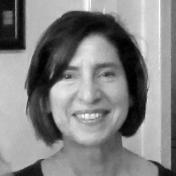 Professor
ProfessorTakehiko Nagakura
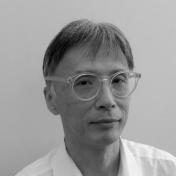 Associate Professor
Associate ProfessorGeorge Stiny
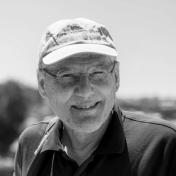 Professor
ProfessorSkylar Tibbits
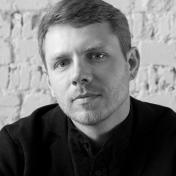 Associate Professor, Director of Undergraduate Programs, Assistant Director for Education at the Morningside Academy for Design
Associate Professor, Director of Undergraduate Programs, Assistant Director for Education at the Morningside Academy for DesignInala Locke
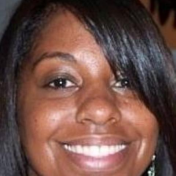 Discipline Group Assistant
Discipline Group Assistant



